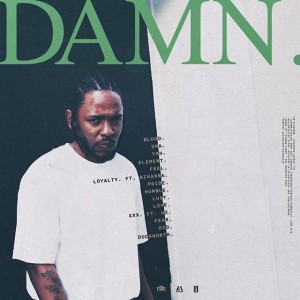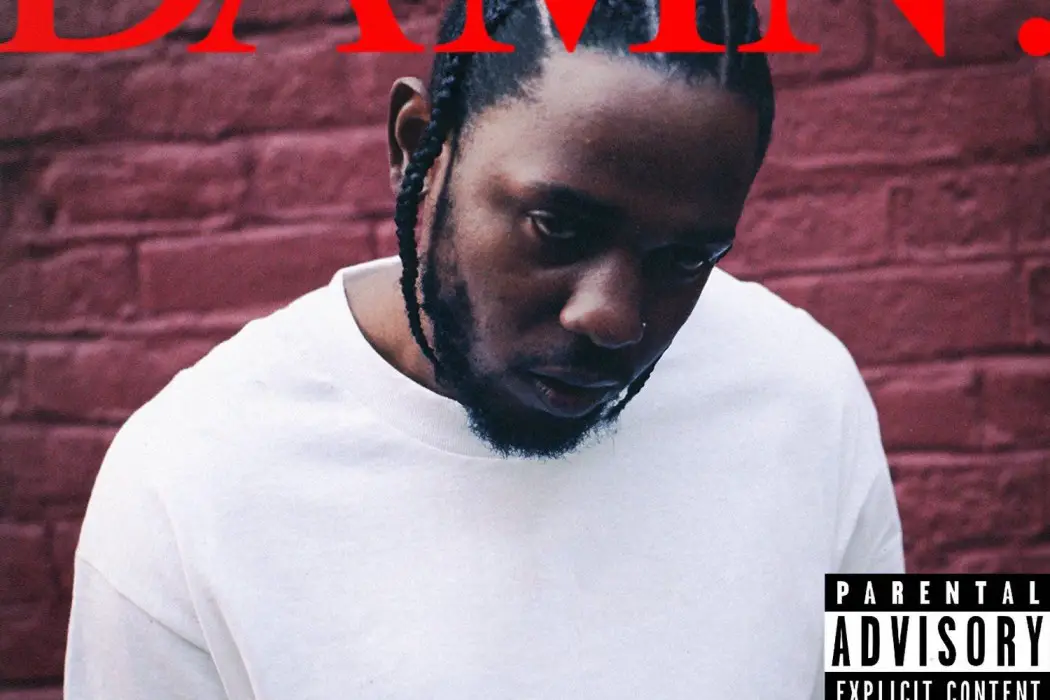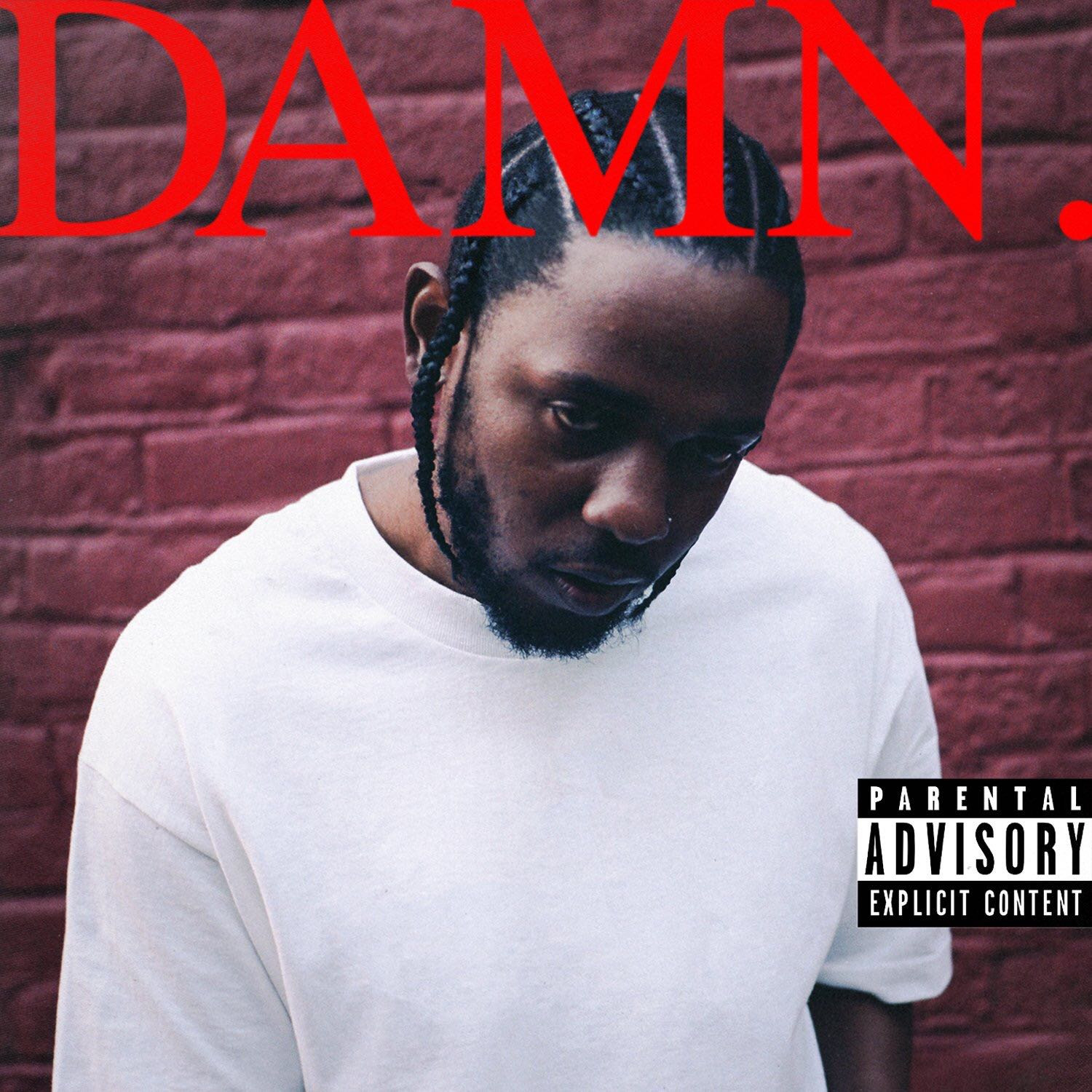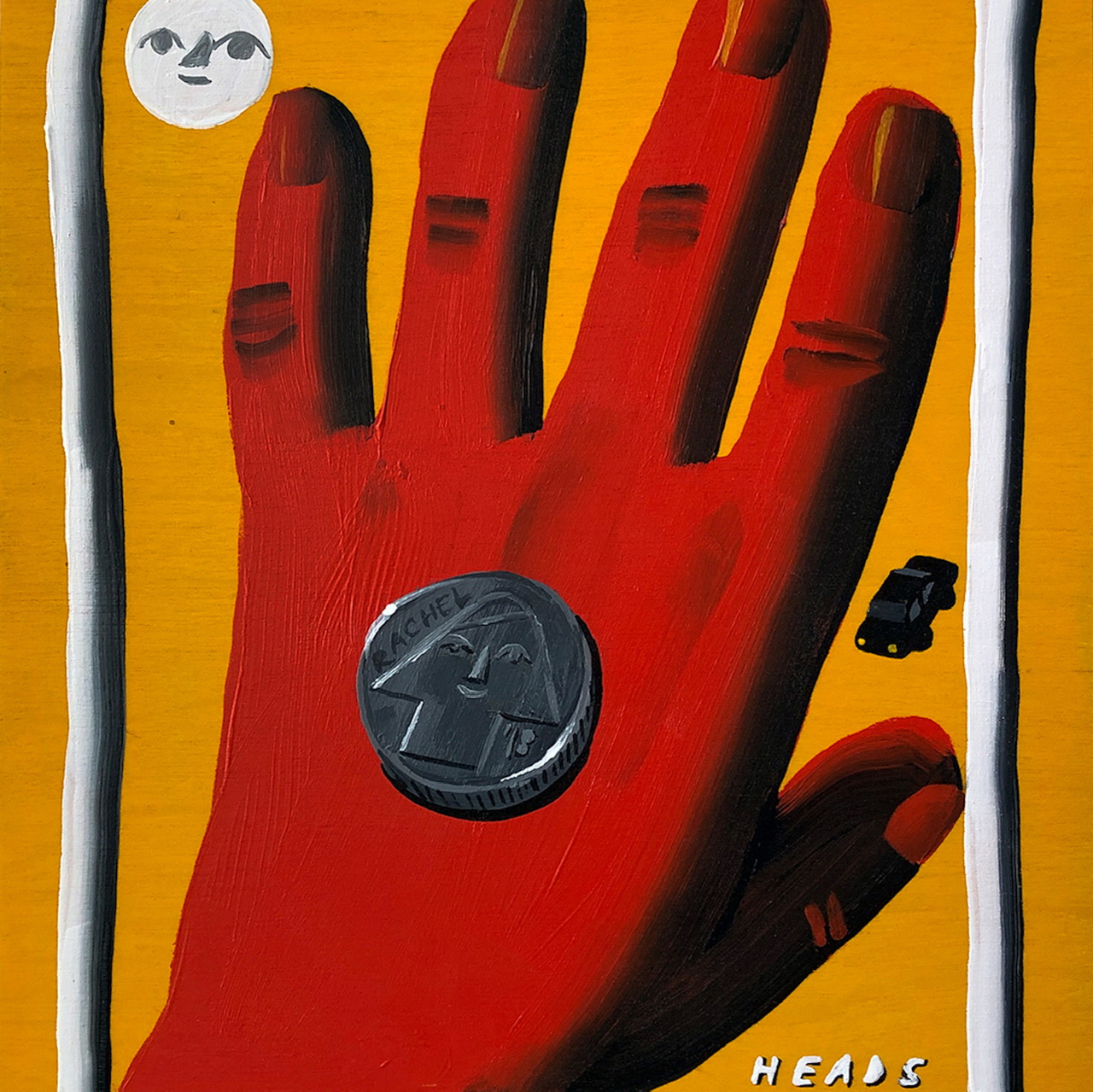The world erupted this past Thursday night over the drop of Kendrick Lamar’s fourth studio album DAMN., and it wouldn’t be too much of a dramatization to say that life’s been surreal since the record’s delivery. Starting in late March with the release of “The Heart Part 4” – the latest addition to the rapper’s long-running “The Heart” song series – speculation about what else Lamar had up his sleeve grew widespread, and when “HUMBLE.” and its anthemic cynicism was revealed to be the first single from a then-enigmatic project, speculation was exchanged for giddiness.
Today, DAMN. (4/14 via Interscope) is no longer of notional existence; its sudden omnipresence might blindside those who are accustomed to the traditional course that leads to a new record’s unveiling, in which at least a few singles are released within a span of months. But all that tease and protraction is hype that Lamar doesn’t need, and although a mere two weeks is all the time he gave fans to mentally prepare for this latest album, nobody’s complaining.

As tracks like “DNA.” and “HUMBLE.” double as both chart-toppers and everyone’s Instagram story background-music-of-choice, it’s clear that DAMN. is another creation validating Lamar as the best rapper of the generation who also happens to moonlight as a commercial success. The album’s straightforwardness is divergent from the avant-garde of 2015’s To Pimp a Butterfly; DAMN.’s aforenoted, bass-heavy bangers are fitting for mainstream audiences than the most “conventional” singles of his older masterpiece, while Rihanna and U2’s respective presence on “LOYALTY.” and “XXX.” strengthens the new record’s mass appeal in ways that the more inconspicuous monikers of Thundercat or Anna Wise wouldn’t.
But when it comes to Lamar’s work, vast familiarity doesn’t equate to hollowness. And as sinful as it is to continue paralleling the merits of To Pimp a Butterfly with DAMN., it’s crucial to note that the latter record is just as political and introspective as its predecessor – that brilliance is simply more direct. As Fox News’ Geraldo Rivera insists that hip-hop is “more (damaging) to young African Americans than racism in recent years,” (one of the political commentator’s bigoted remarks echoed throughout Lamar’s latest record) bumping the numerous loud parts of DAMN. as often and obnoxiously as possible feels delightfully subversive.
At the same time, there’s an underrated quietness to DAMN. that’s best exhibited on “FEAR.,” a track that thematically bridges its parent album to To Pimp a Butterfly with contemplation, and traces Lamar’s 7-year-old childhood to maturity 20 years later. Coming in at nearly eight minutes, the song resounds a lot of what he’s already poeticized on older projects, like issues of domestic abuse and adulthood paranoia. But “FEAR” offers a lengthier, literal elaboration on stories previously delivered in abstractions that were, for instance, applicable to larger, oppressed audiences, or addressed the alleged naivete of disadvantaged black Americans, rather than Lamar exclusively.
Listen: “FEAR.” – Kendrick Lamar
On “FEAR.,” a 29-year-old Kendrick remarkably explicates the anxieties he had at 27 years old, like being robbed of his fortune – re: Rihanna’s 2009 near-bankruptcy or To Pimp a Butterfly’s “Wesley’s Theory,” inspired by actor Wesley Snipes’ tax fraud convictions. As Lamar reflects over the funk of spacey guitar picking, it’s impossible to not feel a chilling mixture of sympathy, if not understanding. The lines “What is an advisor? Somebody that’s holding my checks / Just to fuck me over and put my finances in debt?” represents an external distrust sparked by other’s notorious experiences.

Lamar has rapped about the enticements of Uncle Sam, Satan and the rap industry before, but “FEAR.” touches on personal blame more than other tracks, especially with phrases like “Scared to go back to Section 8 with my mama stressin’ / 30 shows a month and I still won’t buy me no Lexus,” that pointedly capture the Compton rapper’s cynicism – an attitude ostensibly fueling his self-doubt that infects every facet of his being, from creativity to humility, pride and loyalty. The final bars of “FEAR.” appropriately encompass the song’s nominal emotion, and after its eight minutes conclude, the eleven previous tracks on DAMN. feel more unified and transparent.
Capped from beginning to end by a preachy voicemail from cousin Carl Duckworth, and Lamar’s characterization of his mother who operated a domestic reign of terror (I beat yo ass if I beat yo ass twice and you still here / Seven years old, think you run this house by yourself? / Nigga, you gon’ fear me if you don’t fear no one else) the structure of “FEAR.” further contributes to its meditative theme; in these moments, familial voices seem to have contributed to a fraction of Lamar’s warped self-perception – cousin Carl’s denoting of Christian disobedience leading to colored folks’ hardship, and his mom’s abusive behavior during his formative years. Indeed, Lamar has unabashedly displayed himself to be a scared man, but this track reminds listeners of that fact through candor and specificity that can’t be found elsewhere on DAMN. And since the whole album is shining gold, then “FEAR.,” in particular, is undeniably a diamond.
purchase / stream Kendrick Lamar’s DAMN.
— — — —









